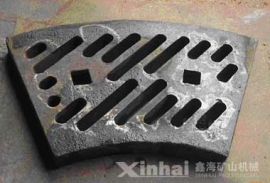Lead and zinc metals are widely used in various industrial fields. With the continuous research on lead-zinc technology, the demand for lead-zinc ore resources is also increasing. In the actual mining process, the beneficiation of lead-zinc oxide ore is relatively complicated, and it also puts forward higher requirements on the beneficiation and smelting technology of ore. Below we will systematically introduce the low-grade lead-zinc mineral separation technology.
Use the table of contents below to navigate through the guide:
01Reasons for difficult low-grade lead-zinc mineral separation
1. Complex matter composition
Lead and zinc are extremely close in primary deposits, often symbiotically. Lead and zinc have the same source of metal-forming materials, similar electronic structures in the outer layer, and easily form the same soluble complexes. There are many kinds of lead oxide and zinc oxide in lead-zinc ores. Among them, zinc oxide minerals are more complex. Water-soluble zinc and willemite account for a large proportion of zinc oxide minerals. This part of zinc belongs to the difficult-to-float zinc minerals in the flotation process.

2. Complex mineral structure
The formation conditions of lead-zinc ore are relatively complex, and are greatly affected by precipitation, climate, and geology. As a result, the specific structures of lead-zinc ores are also different, and the content and distribution of lead-zinc elements are different, which directly leads to different surface shapes of lead-zinc ores.
02Lead-zinc mineral separation process
The complexity of low-grade lead-zinc ore composition leads to a corresponding increase in the difficulty of its beneficiation process. At present, the methods of treating lead-zinc oxide ore include sulfide flotation, direct flotation with anionic collectors, chelating agent neutral oil flotation and leaching flotation. Among them, the most important and commonly used method is the sulfidation flotation method.
According to the different floatability of useful minerals in lead-zinc ore, different sulfidation flotation methods need to be adopted. There are mainly priority flotation method, mixed flotation method, etc. According to the different degree of floatability of lead and zinc, the method of first suppressing the floating of lead, then activating zinc, and then recovering lead and zinc concentrate in turn is the priority flotation method. After the lead and zinc concentrates are mixed and flotated, the method of separating lead and zinc concentrates is the mixed flotation method.

03Lead-zinc ore flotation agent
The beneficiation practice of lead-zinc ore is mainly based on the flotation process, and the selection of the agent has an important influence on the flotation effect. Flotation reagents are mainly used to adjust and control the process of flotation, weaken or improve the flotation of materials, so that gangue and ore can be separated to achieve the purpose of removing impurities or extracting useful ore particles. Lead-zinc ore agents mainly include collectors, activators, and inhibitors.
1. Collecting agent: In the flotation of lead-zinc ore, the commonly used collectors are butyl xanthate and ethyl xanthate, both of which have strong collecting ability.
2. Activator: Since the floatability of zinc is worse than that of lead, lead is often preferentially floated in the flotation process. Among the activators, copper sulfate is the activator with better activation effect at present.
3. Inhibitors: From the perspective of environmental protection, the use of fluorine-free inhibitors is an inevitable trend, mainly zinc sulfate and sulfite. Among them, zinc sulfate is the most important and common inhibitor in fluorine-free process, and it is often used in combination with other inhibitors. Sulfite has better inhibitory effect under neutral and alkaline conditions, but has no inhibitory effect under acidic conditions.

The use of lead and zinc metals is becoming more and more extensive, but the reserves of lead and zinc are relatively small, and the supply of lead and zinc resources is increasingly in short supply. Faced with this situation, lead and zinc resources should be exploited and utilized more rationally. On the one hand, continuously improve the mining technology of lead and zinc ore, and master better mining process and beneficiation agents. On the other hand, do a good job in the research and development of recycling technology, and improve the secondary utilization level of lead-zinc ore. Therefore, it is recommended that concentrator do a good job of beneficiation test before building a lead-zinc processing plant, so as to avoid blindly copying the process and affecting the recovery efficiency of lead-zinc ore.


 marketing@ytxinhai.com
marketing@ytxinhai.com  0086 13810327080
0086 13810327080 






































































































 CHAT
CHAT MESSAGE
MESSAGE



